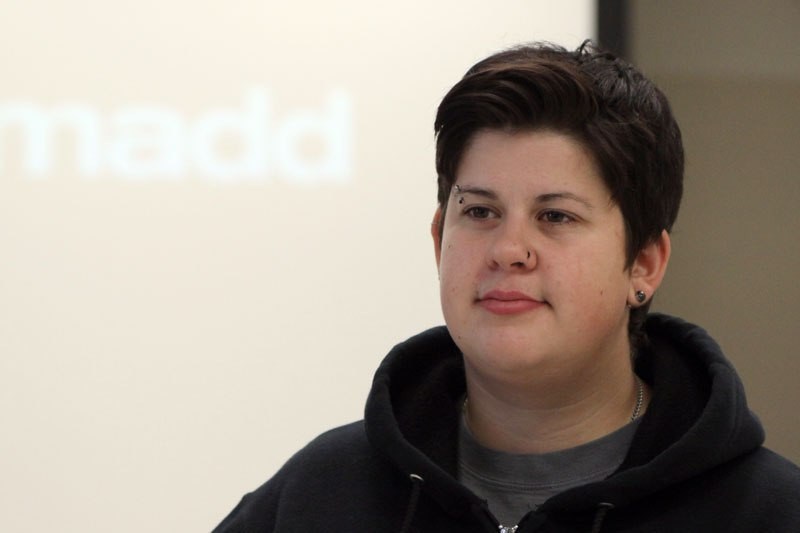Intermediate students at Westmount Public School were shown a graphic picture of what could happen when driving impaired.
Mothers Against Drunk Driving school representative Andrea Sevigny has been travelling through northern Quebec and Ontario showing students the organization's Smashed presentation.
"It is designed for youth to make them aware of the consequences of driving impaired," she said Wednesday morning at the Begin Street school.
"Impaired is really the key word here because we're talking more than driving after drinking, we're also talking about drugs and other types of substances that can affect the way you perceive things and drive a vehicle," said Sevigny.
Smashed begins with a fictional story about three friends who end up at a party; one is peer pressured into drinking and makes the decision to get into a car driven by an impaired classmate. The result is a collision that ends in tragedy.
The presentation also featured real-life testimonials from people who have been injured in impaired driving incidents or lost loved ones.
Sevigny said she hoped the students walked away from Smashed ready to think twice before getting into a car with an impaired driver and that they know their options.
They can either take a taxi, city transit or have a backup plan to call a parent or sober friend.
Smashed contains serious material and Sevigny says students often approach her afterwards saying they'll make different choices if they're ever in similar situations.
While the Grade 7 and 8 students at Westmount are still young to drive, Sevigny said it's also important they learn to not take a ride from anyone who's been drinking alcohol.
Westmount vice-principal Michael Oads said students at that age are developing their values and beliefs.
"This is a perfect age for them to start thinking about the consequences of their actions and the way they're going to manage themselves for the rest of their lives," he said.
"They start to see those things happening, not just on TV and in the media, but in their own personal lives. This really brings home the message about how consequences need to be considered before they behave in certain ways."
